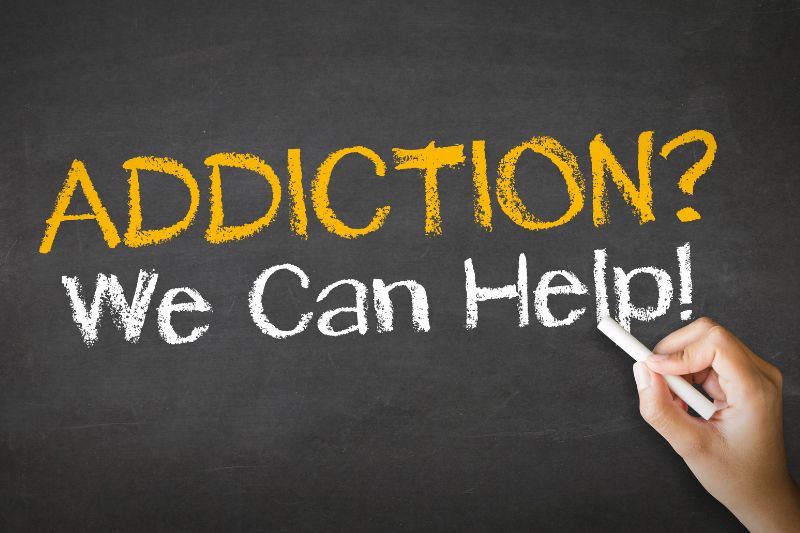Intervention For Drugs

Alcoholism and drug dependence can devastate an individual’s life, resulting in serious health problems, loss of relationships and job opportunities, financial difficulties, and more. Unfortunately, because many people are dealing with stress or trauma that leads to drug use in the first place, it can be difficult for some individuals to recognize when they need help or how to find it.
That is why intervention for drug or alcohol addiction exists – a strategy utilized by friends, family members, and professionals that provides support during this challenging time and encourages someone struggling with addiction to seek treatment.
This article can help you learn more about addiction and what constitutes successful intervention for drugs, as well as provide resources that may be useful if you or someone you love is affected by substance abuse disorder.
What is Drug and Alcohol Intervention?
Drug and alcohol intervention is a process that encourages someone struggling with drug abuse to recognize the extent of their addiction, admit they need help, and get treatment.
A successful intervention involves creating a safe and supportive environment while presenting the individual with facts and information about their addiction so they can make an informed choice about seeking professional help.
Interventions may involve just one person, such as a family member reaching out to their loved one for help or a larger group of people coming together to provide support.
Interventions may be conducted by family members and friends, professionals such as therapists and counselors, or even a combination. No matter who is involved in the process, the most crucial aspect of any successful intervention is a non-judgmental and compassionate approach that makes it clear to the individual struggling with addiction that they are loved and supported.
The Goals Of Intervention For Drugs
Drug addiction can harm a person’s life. The goal of intervention for drugs is to successfully reduce the use and abuse of substances, helping individuals with Alcohol Use Disorder (AUD) make a transition to healthier behaviors.
When intervening on behalf of someone suffering from addiction, there are several primary goals to focus on:
- Encouraging the individual to accept help and get treatment
- Reassuring them that there is hope for recovery
- Offering support throughout the intervention process
- Presenting information about addiction in an unbiased way
- Helping create a plan for long-term sobriety
- Establishing clear boundaries and expectations
- Ensuring the individual has access to resources for recovery
Intervention can be an effective tool in helping someone with addiction find their way back to a life of sobriety and overall health.
It is essential to remember that addiction is a severe physical and mental illness, and intervention should always be approached with patience, understanding, and compassion.
Who Needs Drug and Alcohol Intervention?
Anyone who is struggling with alcohol or drug problem can benefit from intervention. This includes individuals dealing with all types of substance abuse disorders, including Alcohol Use Disorder (AUD), Cocaine Use Disorder, Opioid Use Disorder, and more.
Intervention should be considered if someone is exhibiting signs of addiction, such as changes in behavior, mood, or overall well-being.
When Is The Best Time To Do An Intervention For Drug Addiction
The ideal time to do an intervention is as soon as possible after recognizing the signs of addiction. While it can be challenging to confront a loved one about their substance use disorder, waiting too long can cause further damage and increase the risk of overdose or other health complications.
It is essential to be known the addiction’s severity and potential risks. Intervening too soon may not give the individual enough time to come to terms with their situation and make an informed treatment decision while waiting too long can put them in even greater danger.
When planning an intervention, it is essential to consider all factors that may influence the success of the process. This includes timing, setting, and support system.
The more prepared you are for an intervention, the better your chances of success are in helping your loved one break free from their addiction.
Signs and Symptoms of Addiction
Knowing the signs and symptoms of addiction is essential to recognize when an intervention may be necessary.
Some common signs and symptoms include:
- Changes in behavior or mood swings
- Withdrawal from family, friends, or activities
- Loss of interest in hobbies or activities that used to bring joy
- Decrease in performance at school or work
- Changes in sleep patterns
- Financial troubles due to substance use
- Legal issues related to drug or alcohol abuse
Intervention for drugs and alcohol can be an effective tool for helping someone with addiction get the help they need.
Knowing the signs and symptoms of addiction and intervening at the right moment can make a positive difference in someone’s life.
How To Stage An Intervention
When staging an intervention, it is essential to be prepared with the correct information and resources.
The following steps can help you plan a successful intervention for drugs or alcohol:
Intervention Specialist
It is recommended to enlist the assistance of a professional intervention specialist who can help guide you through the process and provide appropriate resources to the intervention team.
Gathering Information
Gather as much information about the individual’s addiction, such as triggers, signs and symptoms, and potential risks. This will help inform your approach when speaking with them.
Developing A Plan
Create an action plan that outlines the expectations and consequences if they do not accept treatment. This should be tailored to the individual’s specific situation, as well as their needs.
Staging The Intervention
Choose a time when everyone is available and comfortable to participate in the intervention. Ensure a safe, supportive environment for individuals to open up and share their feelings.
Provide Support
The most important thing you can do is provide ongoing support throughout the treatment process. This includes offering emotional and financial aid, attending family counseling sessions, and setting healthy boundaries.
Perceptions Of Intervention
Intervention can be perceived as confrontational by some people. However, it is essential to remember that the goal of an intervention is not to blame or shame someone but to show support and provide resources for them to get help.
Intervening with empathy, understanding, and compassion can have a powerful impact on those struggling with addiction and help them make the necessary changes to lead healthier lives.
You shouldn’t be reluctant to stage an intervention. Furthermore, don’t be concerned about “overstepping your bounds.” It’s critical to speak with an intervention specialist if the warning indicators are present. The life of your loved one could be in danger.
Cost of Interventions
The cost of interventions can vary depending on the type of intervention and the services offered.
Generally, interventions range from $2,000 to $10,000 for a single session. It is important to remember that financial resources are not always necessary for interventions. With the right approach and attitude, you can help your loved one get the assistance they need without spending much money.
Find Drug & Alcohol Rehab Programs Near You
If you or someone you know is fighting addiction, many resources are available to help them get the treatment they need.
There are a variety of drug and alcohol rehab programs that specialize in treating different types of addictions. Find the one that best fits your wants and provides the highest quality of care.
Conclusion
Addiction is a severe physical and mental illness, and intervention can effectively get someone suffering from addiction the help they need. By being known the signs and symptoms, knowing how to stage an intervention, and providing support throughout the treatment program, you can make a positive difference in someone’s life.











Leave a Reply